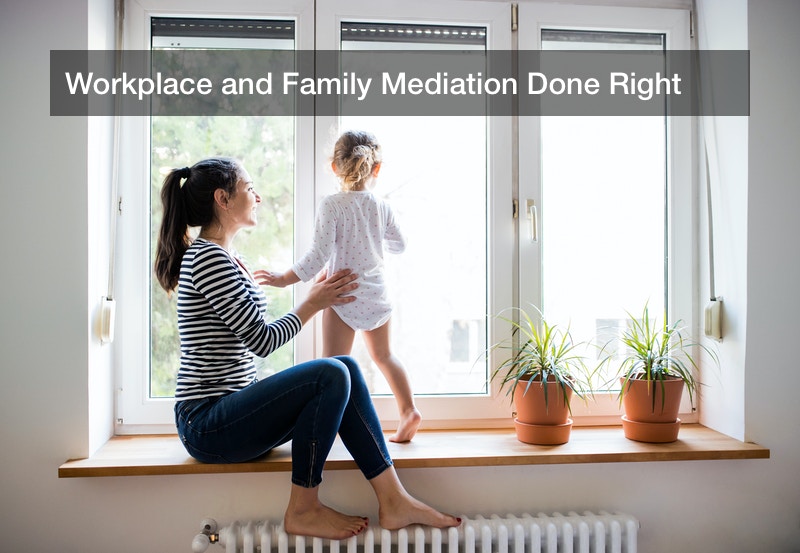
Conflict and disputes are a natural part of life, and often, professional mediators can be hired to help two or more parties speak constructively with one another and devise a solution for their problem. This is common for many topics, but in particular, family mediation is helpful for divorcing families, and workplace mediation can help resolve all sorts of workplace disputes and conflict. Family mediation is essential if the aid of lawyers is not required for the divorce, and family mediation is also relevant if a family member is abusing drugs or alcohol or if two people in the family simply cannot get along. Family law can help two spouses get through a divorce fairly, and at the workplace, mediators can take the place of lawyers if possible. Not every case needs to go to court, after all.
Family Law and Divorces
It is believed that close to 40% of all American marriages end in divorce, and some divorces will be messy affairs that call for divorce lawyers and child custody lawyers. Other, though, are more low-intensity and benefit more from the aid of family mediation. For example, two divorcing spouses are ending their marriage simply because they lost interest in the marriage, or because they realized that they have very different lifestyles or spending habits. These are perfectly valid reasons to seek a divorce, and if marriage counseling cannot save the relationship, mediation may come next. Besides, another benefit of hiring divorce or family mediation experts is that mediation is much cheaper and more private than hiring lawyers and going to divorce court.
Mediating a divorce means hiring one or more mediators who will act as a neutral third party during the divorce proceedings, and a mediator acts more like a referee than an attorney. In mediated divorces, the two spouses will negotiate the divorce’s terms themselves, rather than hiring legal representatives, and the mediator will help both parties come up with fair and constructive ideas and communicate them clearly. That mediator will not take sides, nor will they offer their own ideas or suggestions unless they are asked. A mediated divorce may also have limited possessions and assets worth fighting over, and there might not be any children in the household at all. This, and a relative lack of drama, can make a mediated divorce fairly easy to negotiate without a lawyer’s aid, and with a mediator on hand, the two spouses may soon agree on concrete terms for their divorce.
Mediation for Workplace Conflict
For the most part, the modern workplace is an environment where co-workers and managers all get along and treat each other fairly and professionally. For nearly all American employees, it is vital to work somewhere where they are openly valued and respected as a person and employee alike. In fact, many workers today quit their jobs not because of low pay, but because they are bullied or harassed, or they are taken for granted or given no opportunities for personal and professional growth. A hostile, unhealthy work environment may foster a high turnover rate, which is costly for any business.
What might go wrong? At the hands of their co-workers or a manager/boss, an employee may be the target of verbal, written, violent, or even sexual harassment, abuse, and other mistreatment. Often, such abuse is based on the victim’s real or perceived ethnic identity, sexual orientation, faith, or even disability, such as being wheelchair-bound or having high-functioning autism (part of the autism spectrum disorder). Such mistreatment is against any company’s policies, but it still happens.
When an incident like this takes place, the victim is urged to not retaliate. Instead, they are encouraged to note the time and place of the incident, the people involved, and any details of whatever was said, written, or physically done to harm the victim. The victim may then report this to HR and workplace mediators, and keep a cool head and remember the facts. HR reps and mediators can help the bully/bullies and the victim resolve their differences, and ensure that incidents like that don’t happen in the future. Only in the most dire cases will a workplace conflict victim turn to the aid of lawyers who can represent them in litigation against the instigating party.



